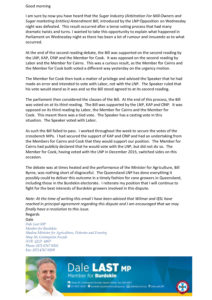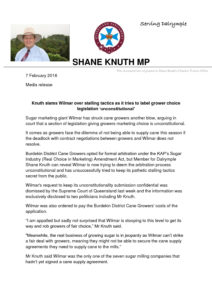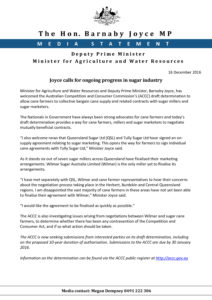Electrical and electoral prices too high
There is no doubt that electricity prices will be a major factor in the outcome of the Queensland State election. The jury however is still out on how various parties will positively address this integral issue for regional and rural Queensland.
Queensland Farmers Federation (QFF) President Stuart Armitage said that despite assurances from politicians over several years of downward pressure on electricity prices, there has been no reprieve and the time for downward pressure is over immediate price relief is needed now.
The ongoing energy crisis continues to have viability and profitability ramifications for Queensland farmers, who over the past decade had experienced electricity price increases of at least 130%. For some, the cost of this basic need and critical farm input has risen by 300%. Over the same period, CPI has increased by just 21%.
Farmers are fed-up with the lack of action and are looking for those candidates and political parties willing to do what it takes to reform the current broken electricity system.
Modern, intensive farming businesses rely on a range of energy-intensive activities for irrigation, heating, cool rooms and packaging sheds to produce high quality food, fibre and foliage. Reliable, affordable electricity is a must for farmers to keep the doors open so they can continue to employ people and support Queensland communities.
Government programs addressing energy efficiency and demand management have been an important resource for helping Queensland farmers to identify, learn and implement energy efficiency practices and changes to their businesses.
These programs must continue and must evolve to factor in linked activities, address broader productivity issues and provide implementation incentives. But they must also be ramped up so more farmers can benefits, and they have only dampened the unsustainable price increases imposed on farmers, Mr Armitage said.
This election QFF is advocating for the following sensible and practical actions to realise our vision for a vibrant and thriving agricultural sector providing food, fibre and amenity to all Queenslanders:


